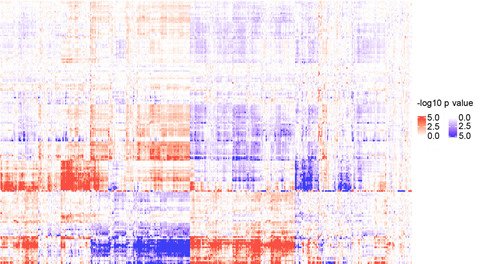
Research
Our research is focused around uncovering coding and non-coding RNAs, involved in resistance to targeted therapies in cancer. In particular, we are focusing on microRNAs modulating refractoriness to Tyrosine Kinase Inhibitor (TKI) treatment in lung cancer, and how to deliver microRNA-based drugs into lung tumor models.
MicroRNAs suppress target genes by nucleotide pairing to the 3’UTR of messenger RNAs, thereby tuning gene expression with each microRNA able to regulate numerous genes.
During recent years, microRNA therapies have come under the development for a wide variety of diseases, including cancer. Delivery of microRNAs can be carried out using synthesized mimic-, or inhibitory molecules. The mimic molecule approach is based on introducing a synthetic molecule that is identical to a microRNA lost in cancer, while the inhibitory approach relies on specifically blocking microRNAs aberrantly expressed in cancer.
Due to the promiscuous nature of microRNAs, delivery of microRNA drugs provides an ability to target multiple factors in single or overlapping signaling pathways. Hence, modulation of microRNAs may be particularly interesting when targeting refractory cancers.
We have established multiple methods in the laboratory to systematically uncover RNAs, including microRNAs, of specific importance for therapy refractoriness. Moreover, we have experience in formulating RNA-molecules into lipid nanoparticle vehicles for systemic in vivo delivery.
Projects
RNAs in treatment-refractory lung adenocarcinomas
The majority of all lung cancers are classified as lung adenocarcinomas. A fraction of these cancers harbor mutations in receptor tyrosine kinases (RTKs), including EGFR and ALK, making them amenable for targeted therapy through tyrosine kinase inhibitors (TKIs). TKIs targeting these RTKs display superior efficacy in the clinic compared to chemotherapy and have quickly been established as standard of care for lung cancer patients with activating mutations in specific RTKs. Although most patients respond in a favorable way to TKI-treatment, therapy resistance eventually emerges. Our aim in this project is to uncover diagnostic profiles as well as therapeutic molecular candidates among coding and non-coding RNAs of specific importance for TKI resistance in lung adenocarcinomas.
The role of microRNAs in cell-cycle driven cancers
One of the main physiological alterations in cancer is self-sufficiency in growth signals. Growth signaling induces expression of cyclins, which subsequently recruit and activate their kinase partners, cyclin-dependent kinases (CDKs). Together, they form complexes that govern DNA-synthesis and cell division. Analysis across human tumors has revealed that cyclins and CDKs belong to the most frequently amplified genes across human cancer, including in lung cancers. Conversely, endogenous cell cycle inhibitory genes belong to the most frequently lost in cancers. We recently demonstrated that specific microRNAs, enriched in targeting multiple cell-cycle components, were highly efficacious in targeting refractory cancer types in vitro and in vivo, including triple negative breast cancers and KRAS-driven lung cancers. Our aim in this project is to expand on our previous findings to uncover microRNAs of particular importance for the cell cycle machinery in lung adenocarcinomas.
Patient-derived lung cancer organoids
In addition, the team develops patient-derived lung cancer organoids, a next-generation tumor model that overcomes many of the limitations of traditional 2D cell lines. These 3D organoids retain the key features of the patient’s tumor, making them a powerful tool to study lung cancer in a way that closely reflects real disease. As we have established this technology specifically for lung cancer, we are in a strong position to bring clinical samples and research questions together. This allows us to linking patient-derived material with mechanistic studies in the lab. With this platform, we investigate how lung tumours grow, adapt, and develop resistance.
By combining organoid experiments with next-generation sequencing, we explore genetic and molecular features that define different subgroups of lung cancer, helping us identify patterns and new vulnerabilities across patient samples. An important part of our work is drug screening. By testing clinically relevant therapies directly on patient-derived organoids, we aim to generate functional data that may support clinical decision-making in the future. Further, we collaborate with academic partners developing personalized immune-assays, integrating organoid-based insights with innovative therapeutic approaches.
Through this bedside-to-benchside-and-back framework, we aim to advance both biological understanding and patient-focused research, using organoid technology as a bridge between laboratory innovation and improved treatment strategies for lung cancer.
